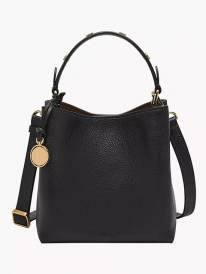Battle with Crohn's Disease

Big Brother star's personal battle with Crohn's Disease
"I was losing blood and heaps of weight which was making me really grumpy," said Peter Timbs, 29, referring to his personal battle with Crohn's Disease, which was recently made public during his seven week stint in the Big Brother House.
"My health was fine until week five in the House, when I had a relapse and couldn't hide it. Christina (his in-House girlfriend) was copping the brunt of my frustration. So I made the decision to tell her and all of the house mates," Peter confessed.
Crohn's disease is a life-long, incurable, non-contagious, inflammatory bowel disease of no known origin that affects more than 10,000 Australians, most commonly diagnosed between the age of 15 to 30. The disease can affect any part of the digestive tract, from the mouth to the anus. The last part of the small bowel, the ileum, is the most common site of Crohn's.
According to Managing Director of the Australian Crohn's and Colitis Association (ACCA), Mrs Angela McAvoy, "People with Crohn's disease experience chronic pain on and off throughout their lives, often in conjunction with diarrhoea and / or rectal bleeding. Other symptoms may include abdominal pain, fever, vomiting, fatigue, loss of appetite and weight, constipation and nutritional deficiencies. Other symptoms that may appear outside of the bowel can result in problems of the skin, joints, eyes or liver. One of the most painful major complications involves abscesses and fistulas - abnormal channels that burrow from the bowel to the skin and constantly weep faeces."

Peter has been living with this debilitating disease for 13 years. During this time, Crohn's has had a major impact on his quality of life. "When I was 22 years old, I applied for the Fire Brigade. But I wasn't even given the opportunity to undergo a medical, because I wrote on my application form that I had Crohn's. I was distraught. But you can't let it get you down. Once diagnosed, you can't just sit around waiting for another relapse. You've got to get on with your life," Peter said.
"Crohn's is something to be lived with and certainly nothing to be ashamed of. It's important to tell people close to you that you've got Crohn's. By going public, I hope to help other people feel more comfortable with Crohn's, so that they too can talk openly about this debilitating disease," he said.
Peter discovered he had Crohn's when he was 16 years old. He was diagnosed within three months of his first flare-up. "I was cramping and had lost 10 kilos in one week. So together with my doctor, we jumped on it quickly," he said.
Four years later Peter experienced another flare-up when he was at work. "I was rushed into casualty and placed on a drip. I was put on steroids for five months and became very bulky. It took me eight months to return to my normal size. Although I personally experienced bad side-effects from the steroids, I would rather use them than undergo an operation that may involve having to use an ileostomy bag," said Peter.
Fortunately after this relapse, Peter's employer accepted him back at work. But according to Mrs McAvoy, not all employers are as accepting or understanding as Peter's. "Some employers can reduce availability of work or make it so uncomfortable that people are forced to leave or resign. Even though Australia has a national anti-discrimination law, employers can use subtle strategies to force people out if they wish to."

Peter's mother has also recently been diagnosed with Crohn's. "Mum keeps me up-to-date with the latest treatments," he said. "I've tried prescription medications, homeopathy, naturopathy and changed my diet. Different combinations at different times work well for me. But everyone is different and unfortunately, there are many people with more serious Crohn's who are not so lucky."
There are a range of treatments available to people with Crohn's that are tailored to suit the individual, including drugs and surgery. "Not everyone's disease responds to drug treatment and complications can often occur, leading to surgery. Because surgery is not a cure, the disease can reoccur. So for some people, multiple surgery may be necessary, which can result in a short bowel and / or a stoma (an abdominal bag to collect faeces)," said Mrs McAvoy
To obtain further information about Crohn's disease or treatments currently available, please contact the Australian Crohn's and Colitis Association on 1800 138 029 or visit http://www.acca.net.au. For those people living in Queensland, the number to call for more information is 1800 071 072 or visit http://www.accaq.org.au.
"I was losing blood and heaps of weight which was making me really grumpy," said Peter Timbs, 29, referring to his personal battle with Crohn's Disease, which was recently made public during his seven week stint in the Big Brother House.
"My health was fine until week five in the House, when I had a relapse and couldn't hide it. Christina (his in-House girlfriend) was copping the brunt of my frustration. So I made the decision to tell her and all of the house mates," Peter confessed.
Crohn's disease is a life-long, incurable, non-contagious, inflammatory bowel disease of no known origin that affects more than 10,000 Australians, most commonly diagnosed between the age of 15 to 30. The disease can affect any part of the digestive tract, from the mouth to the anus. The last part of the small bowel, the ileum, is the most common site of Crohn's.
According to Managing Director of the Australian Crohn's and Colitis Association (ACCA), Mrs Angela McAvoy, "People with Crohn's disease experience chronic pain on and off throughout their lives, often in conjunction with diarrhoea and / or rectal bleeding. Other symptoms may include abdominal pain, fever, vomiting, fatigue, loss of appetite and weight, constipation and nutritional deficiencies. Other symptoms that may appear outside of the bowel can result in problems of the skin, joints, eyes or liver. One of the most painful major complications involves abscesses and fistulas - abnormal channels that burrow from the bowel to the skin and constantly weep faeces."

Peter has been living with this debilitating disease for 13 years. During this time, Crohn's has had a major impact on his quality of life. "When I was 22 years old, I applied for the Fire Brigade. But I wasn't even given the opportunity to undergo a medical, because I wrote on my application form that I had Crohn's. I was distraught. But you can't let it get you down. Once diagnosed, you can't just sit around waiting for another relapse. You've got to get on with your life," Peter said.
"Crohn's is something to be lived with and certainly nothing to be ashamed of. It's important to tell people close to you that you've got Crohn's. By going public, I hope to help other people feel more comfortable with Crohn's, so that they too can talk openly about this debilitating disease," he said.
Peter discovered he had Crohn's when he was 16 years old. He was diagnosed within three months of his first flare-up. "I was cramping and had lost 10 kilos in one week. So together with my doctor, we jumped on it quickly," he said.
Four years later Peter experienced another flare-up when he was at work. "I was rushed into casualty and placed on a drip. I was put on steroids for five months and became very bulky. It took me eight months to return to my normal size. Although I personally experienced bad side-effects from the steroids, I would rather use them than undergo an operation that may involve having to use an ileostomy bag," said Peter.
Fortunately after this relapse, Peter's employer accepted him back at work. But according to Mrs McAvoy, not all employers are as accepting or understanding as Peter's. "Some employers can reduce availability of work or make it so uncomfortable that people are forced to leave or resign. Even though Australia has a national anti-discrimination law, employers can use subtle strategies to force people out if they wish to."

Peter's mother has also recently been diagnosed with Crohn's. "Mum keeps me up-to-date with the latest treatments," he said. "I've tried prescription medications, homeopathy, naturopathy and changed my diet. Different combinations at different times work well for me. But everyone is different and unfortunately, there are many people with more serious Crohn's who are not so lucky."
There are a range of treatments available to people with Crohn's that are tailored to suit the individual, including drugs and surgery. "Not everyone's disease responds to drug treatment and complications can often occur, leading to surgery. Because surgery is not a cure, the disease can reoccur. So for some people, multiple surgery may be necessary, which can result in a short bowel and / or a stoma (an abdominal bag to collect faeces)," said Mrs McAvoy
To obtain further information about Crohn's disease or treatments currently available, please contact the Australian Crohn's and Colitis Association on 1800 138 029 or visit http://www.acca.net.au. For those people living in Queensland, the number to call for more information is 1800 071 072 or visit http://www.accaq.org.au.
MORE
- How to Conquer Bad Winter Health Habits
- 1.5 million for 1.5 million Victorians...
- Be U Not a Bully Forum for Parents and Teens
- New Screening Test Recommended To Help Prevent...
- Vitamin D Mushrooms May Solve Health Dilemma
- Gemma Howorth World-First Solates Class Interview
- Federal Government Clarifies Carer Allowance...
- Fiona Clark Sleep Problems Linked to Bullying...
- Elective Surgery and Emergency Care on Increase
- Emotional Stress Proves to be a Pain in the Back
- CPSA applauds Choice IPL and Laser Regulation...
- Karen Kaye Complementary Medicines Are...
- Danielle Stowasser Pain Relief Interview
- Dr Weng Sam Type 2 Diabetes Medication Interview
- Blood Clots and Stroke Fourth Indicator
- An Unhealthy Mouth can lead to Heart Disease
- Sharing MS Diagnosis Key To Retaining Employment
- CanTeen Counselling Service
- Australia Leads The Way With HPV Vaccination Of...
- Chloe Cunningham No More Angels Lost to...
Copyright © 2001 - Girl.com.au, a Trillion.com Company - All rights reserved. 6-8 East Concourse, Beaumaris, Vic 3193, Australia.





